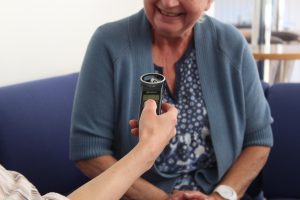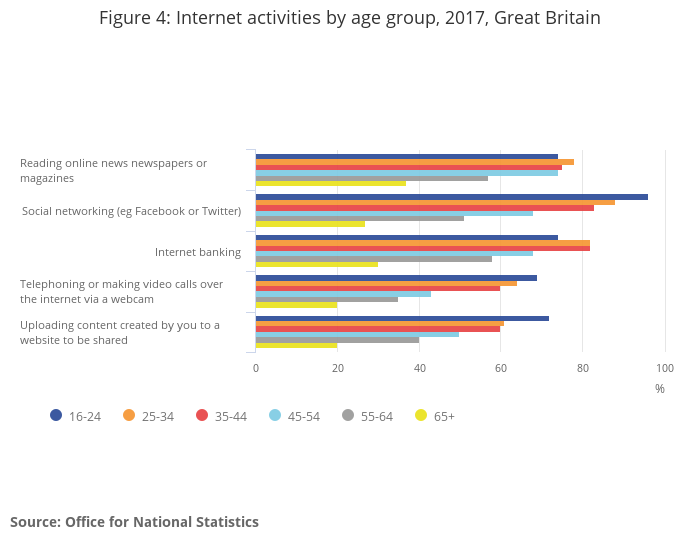Our You Are Hear project officer, Sarah-Joy Maddeaux, reflects on why oral history continues to have value even in an age of high literacy rates and easy access to public platforms.
I recently had the joy of running an oral history training workshop, for a local heritage society. I always start with some theorising about oral history: why should we do it, what is its value, what need does it meet?
One of the main arguments for taking the time to create oral history recordings has traditionally been that it enables you to add a missing perspective into the historical record. The majority of the records at the Essex Record Office have been created by those in power: government records, church records, estate records of the major landed families in the county. Individuals from the ruled classes might make it into the records, but predominantly in records written about them, rather than by them. Limited literacy, limited access to writing materials, and the process of documents making their way into record offices have generally been given as reasons why the voices of everyday people are hard to find in the archive (though read this interesting challenge of the common assumption that writing paper was expensive). Oral history can change that: any individual can be interviewed about their experiences. It merely takes someone with time and a sound recorder to interview them.
Minnie Johnson’s story of her life in a traveller community is unlikely to have been known were it not for this oral history interview – she explains that she taught herself to read from comic books, but cannot write more than her name. The full interview can be heard on Essex Archives Online or our Soundcloud channel (SA 24/1925/1).
This is all excellent, and the rise of oral history ran alongside the rise of ‘history from below’ from around the 1960s. Using interviews allows historians to look at alternative histories to political and economic studies. Hearing from ‘ordinary’ people allows you to find out about everyday life for social and cultural history. Or it allows you to study political and economic history from a different perspective: how did the 1930s Depression actually affect people’s daily lives? How did Joe Bloggs feel about international relations during and after the Second World War? Without oral history interviews, these and similar questions would be very difficult to answer.
So we happily trot out these examples of why oral history interviews have value for giving a voice to the ‘ruled classes’. But is this as true today? Literacy rates are high (though not high enough). Access to writing material is prevalent. You can go into your local library and use a computer to type up your reminiscences. If you really wanted, you could probably use scrap paper from junk mail received and free pens given out at events to write down your life history without it costing you a penny.
What is more, platforms for making your voice heard are much easier to reach. There are social media channels; online petition sites; and file sharing sites that give you free and easy access to voice your opinions. According to the Office for National Statistics, in 2017 96% of 16-24 year-olds surveyed used social media, and 51% of 55-64 year-olds.
While there are still barriers to technology, it is much easier to find the views of everyday people. So does oral history matter now, when people can make their way into the historical record of their own volition?
Laying aside the (very large!) problem of permanent preservation of online content, I argue that oral history does still, and will continue to, play a very valuable role in filling in gaps in the record.
Facebook posts and Tweets tend to be written in immediate response to an event. They represent a person’s immediate reactions. They can be mundane, amusing, fiery, or heartbreaking, but what is written today may not be true tomorrow. They are instantly written, and often instantly forgotten.
Oral history recordings are generally collected from people towards the latter stages of their lives. Some argue that this limits their usefulness: you are relying on the supposed frailty of human memory, and on the interviewee reliving events from their current perspective, looking back in hindsight. But this is one of the characteristics that gives the oral history interview its inherent value. From a distance, the interviewee can reflect on events they experienced, what emotions they prompted, and how they reacted. This will give a more balanced insight into which events and experiences were most significant in shaping the individual, and therefore shaping the culture and society in which each lived.
Mrs Summers reflects on how she felt about moving to Harlow in 1952, from the perspective of 34 years of hindsight. The full interview, recorded by Dr Judy Attfield, can be heard on Soundcloud or Essex Archives Online (SA 22/1364/1).
In fifty years’ time, if you amassed all social media posts I have written in 2017, this would give you one impression of who I was and what happened to me. Interviewing me alongside this data will help to give a fuller picture. Firstly, you can ask me to explain further details. For example, when I posted a picture of a meal I was about to eat, you can ask how representative this meal was of what I ate on a regular basis. As mundane as social media posts can be, oral history interviews will still have value in probing the details of everyday life and culture.
Secondly, you can ask me about the events that prompted my posts, and, I hope, you will get a different, more considered insight on what was happening. How will I feel in fifty years about my experiences in 2017? 
Thirdly, there will always be matters that we do not share publicly at the time, but which we are happy to discuss further down the line. Oral history interviews will perhaps highlight the most life-changing events that are otherwise absent from contemporary autobiographical records.
Access to the historical record might be widening, but there is still a place for an oral history interview, where the interviewer can prompt those reflective questions from an outside perspective. Long may it continue.
Hear more of Sarah-Joy’s musings on oral history in the Essex Sound and Video Archive at the Essex History Group talk in May. Keep an eye on our events page to book, or subscribe to receive notifications about upcoming History Group talks.
If you want to embark on your own oral history interviewing project, the Essex Sound and Video Archive can provide training to help you get started. Please contact us for more information.

